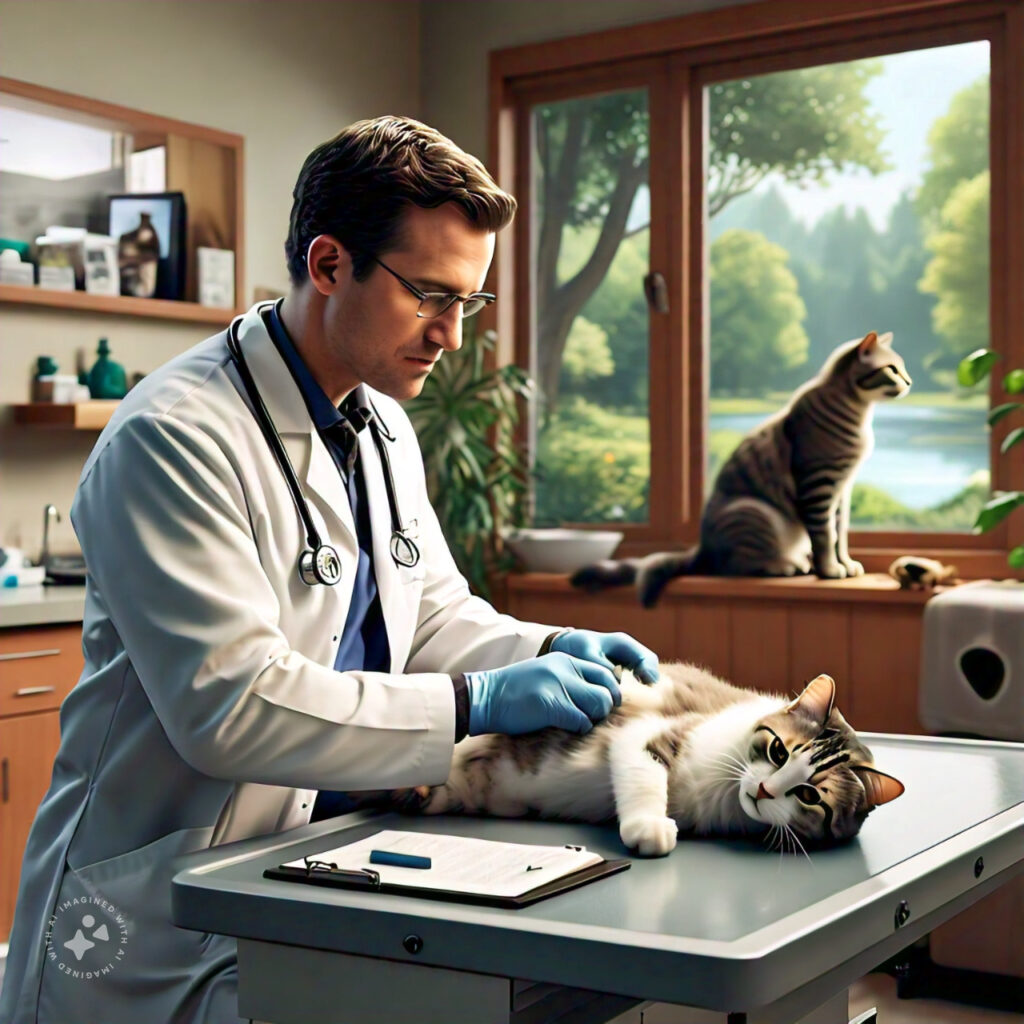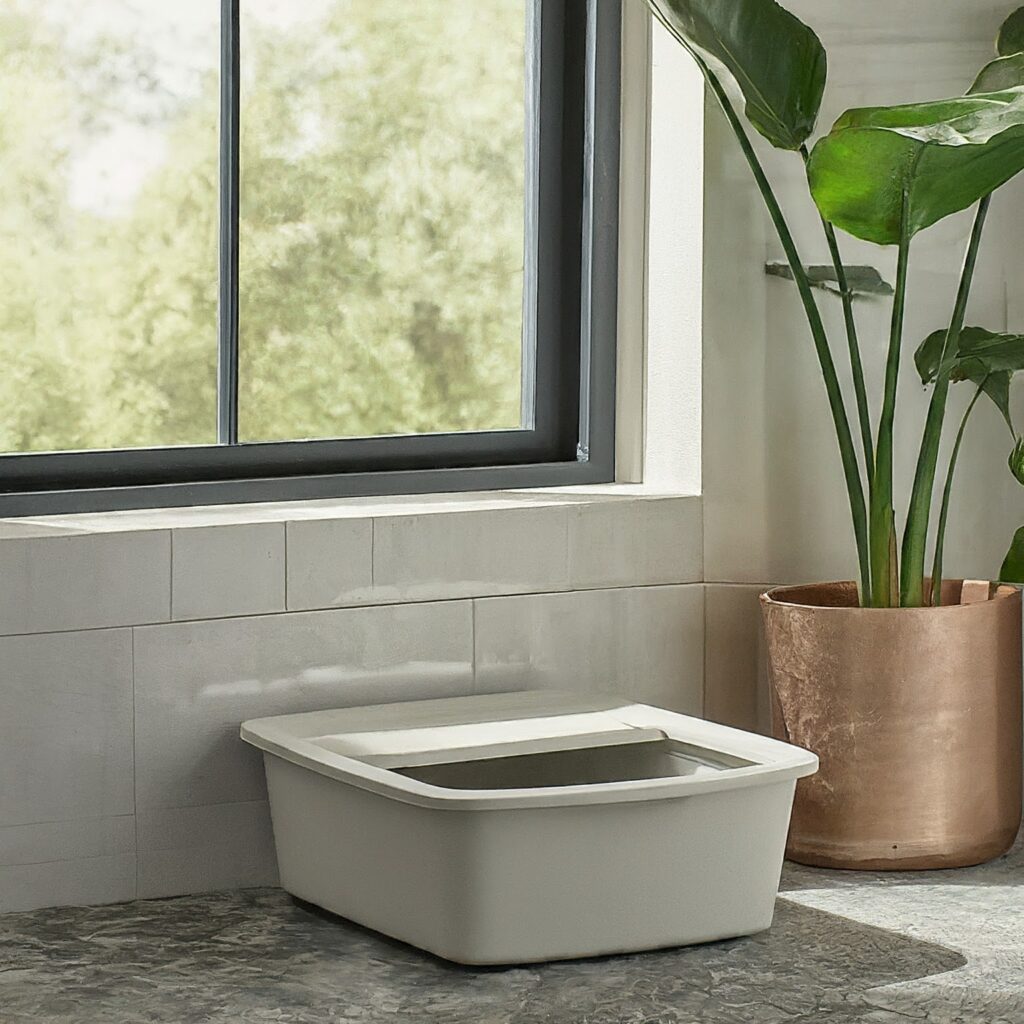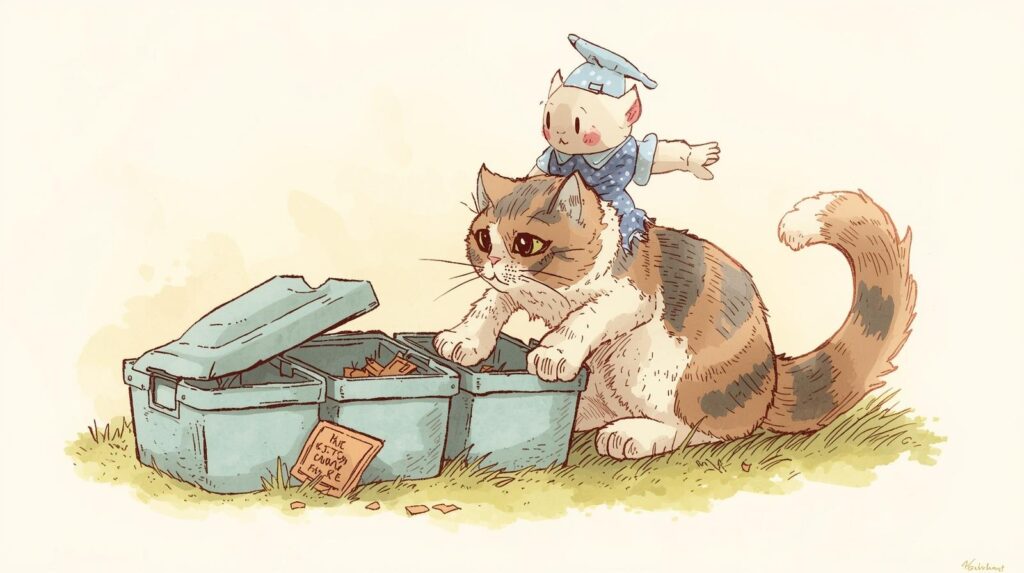Can worms cause cats to pee outside the litter box? Yes, worms and other parasitic infections can lead to discomfort in cats, which may result in them avoiding the litter box. When worms are present, they can cause digestive irritation and general discomfort, making it painful or unpleasant for cats to use the box, leading them to urinate elsewhere as a form of relief
When a cat suddenly starts urinating outside the litter box, it can be both puzzling and frustrating. Health issues are often the culprit, and worms or other parasites are one potential cause that cat owners may overlook. Understanding how worms affect a cat’s behavior, and knowing how to spot symptoms, can help you address litter box issues and restore your cat’s comfort and hygiene habits.

Table of Contents
1. How Worms Affect a Cat’s Bathroom Habits
- Discomfort and Litter Box Avoidance: Worms cause gastrointestinal and overall physical discomfort, making litter box use challenging for affected cats. They may associate the litter box with discomfort, leading to avoidance and urination outside the box.
- Physical Symptoms Linked to Worms: Common signs of parasitic infection include visible worms in the cat’s feces, weight loss, and increased irritation, which can all contribute to a cat’s reluctance to use the litter box.
- Common Types of Worms: Roundworms and tapeworms are the most common culprits affecting cats. Roundworms can lead to bloating, while tapeworms cause digestive irritation, which may further disrupt litter box habits.
By recognizing these symptoms early, you can help manage your cat’s comfort and prevent litter box avoidance from worsening.
Also Read: Can Vinegar Dissolve Cat Litter? Vinegar Litter Box Cleaning Guide
2. Other Medical Reasons Cats Avoid the Litter Box
- Urinary Tract Infections (UTIs): UTIs can cause painful urination, leading cats to avoid their litter box in hopes of finding a place that doesn’t feel uncomfortable. While UTIs are not caused by worms, both conditions can appear alongside each other in some cases.
- Bladder Stones and Feline Idiopathic Cystitis (FIC): Stones or bladder inflammation can make urination painful, prompting cats to seek other locations to relieve themselves. Cats suffering from FIC, a stress-related bladder condition, may experience both urinary and gastrointestinal discomfort, sometimes alongside parasites.
For these reasons, it’s vital to get a veterinary assessment to rule out multiple potential causes of inappropriate urination behavior in cats.
Also Read: Why Do Cats Watch You Clean Their Litter Box?
3. Identifying Signs of Worms in Cats
- Visible Signs: Roundworms and tapeworms and also maggots in cats can sometimes be seen in a cat’s stool or around the tail area. Tapeworm segments, for instance, look like small grains of rice and are a clear sign that treatment is needed.
- Weight Loss and Appetite Changes: Cats with worms often experience a change in appetite or lose weight, even if they seem to be eating the same amount. These signs may accompany litter box avoidance.
- Irritation or Swollen Abdomen: In some cases, cats may display a bloated or tender belly due to the presence of parasites, which can further discourage them from using the litter box if they associate it with discomfort.
If you notice any of these signs in addition to litter box avoidance, consulting a vet can help confirm whether worms are involved and guide treatment.
Also read: How to Empty a Cat Litter Box: Step-by-Step Guide for Cat Owners
4. How to Prevent Worm-Related Litter Box Issues

- Regular Deworming: Prevention is the best approach. Cats should be dewormed according to a schedule recommended by a veterinarian, especially if they spend time outdoors or live in multi-cat homes.
- Routine Health Check-Ups: Regular vet visits can help catch and treat parasitic infections early before they impact your cat’s litter box behavior.
- Maintain a Clean Environment: Regularly cleaning the litter box and surrounding areas can reduce the chance of parasitic infections. Proper disposal of waste can also limit reinfection, especially if the cat has access to outdoor spaces.
Regular deworming and hygiene practices are key to reducing the risk of parasites affecting your cat’s behavior.
Also Read: cat pee turns litter to mud
5. Treatment Options for Worms in Cats
- Veterinary Deworming Medications: Most deworming treatments are highly effective at eradicating common parasites. Your vet can prescribe a safe medication based on the type of worm affecting your cat.
- Follow-Up Treatment: After initial treatment, follow-up visits are often recommended to ensure the worms are fully eliminated and to monitor your cat’s recovery. Preventive measures may also be suggested, especially if your cat had a significant infestation.
- At-Home Care: Keep the litter box meticulously clean during treatment, as it helps prevent reinfection and provides a more comfortable environment for your cat.
By addressing parasites directly, you can help resolve your cat’s litter box issues while improving their overall health.
Also Read: Keep Cat Litter Off the Floor: Reasons and Solutions of Litter Tracking
6. When to See a Vet for Persistent Litter Box Avoidance
If your cat continues to avoid the litter box despite treatment, further investigation may be necessary. Sometimes, behavioral issues arise from stress or territory conflicts rather than medical conditions, so a vet can help guide you on the right path. Additionally, if no worms are found, testing for UTIs, bladder stones, or other urinary issues could reveal the cause behind your cat’s behavior.
Conclusion
Worms and other parasitic infections can disrupt your cat’s health and lead to litter box avoidance. With regular preventive care, prompt treatment, and good hygiene practices, you can help prevent and resolve these issues, keeping your cat healthy and happy in their designated bathroom space. Remember, a sudden change in litter box habits is often a sign that your cat needs attention, so a visit to the vet can be the first step to restoring their comfort.


